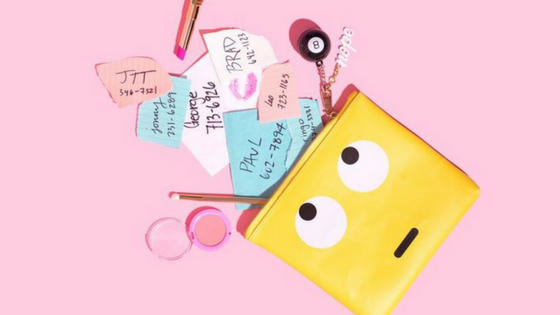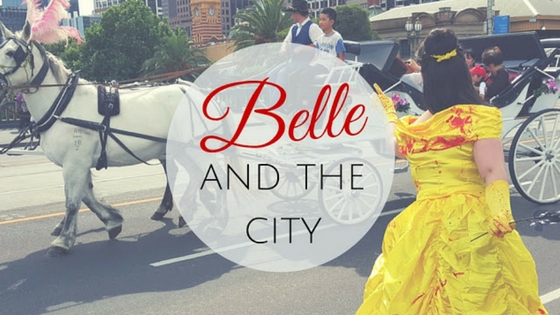Don't ask about my e-mail address
There has been a radical change, in the past decade, that involved our daily life more than what anyone could have predicted. It was a small change for society but a huge one for each individual, and I found myself in the middle of it when I was about to sign up to a membership card in a tea store.
In the past years the @ symbol has dramatically been moved from its usual backrow to a defining pole position. Maybe that’s why I feel like this week’s topic will be misunderstood by my ‘younger audience’.
As if I had one.
My generation was cursed and blessed with freedom of e-mail addresses. What came before that @ symbol identified us on such deep level it was even used as a nickname, and sharing it with friends nowadays is a bit like trading cards. We have no other reason to disclose it, not since real names on Facebook, Whatsapp, and @ followed by a handle.
What was our true identity was kept secret and safe by an @ symbol.
Not so secret anymore, because I bet everyone has used it for something more official, by force of habit.
Like that one time I bought a new sim card to study in England and I signed up using my teenage e-mail address. I could not have foreseen that, at the time to end my phone contract, I would have been standing in the middle of London Gatwick airport, holding twelve kilos worth of books and notes in my carry-on bag and wearing sixteen layers of clothing, trying to find my gate and, at the same time, organise my thoughts to produce the correct spelling of my account details to a clueless operator.
Raise your hand if, about twenty years ago, you too have created an e-mail account and used a name that sounded awesome and really portrayed your true self in pure ‘it’s not a phase, it’s who I really am’ style. Accidentally, that was also your official e-mail address and you used it for everything, especially msn.
If you are too young and don’t know what msn is, picture messenger with a 90s makeover, and with the chance to be really, I mean really really, creative with your name.
Lower your hand if you would never use the same address as your social media handle. Can you even imagine? I wouldn't want to expose my close friends on this blog but I know you are thinking of your first e-mail address as your public handle and shivering.
Today, what comes after that @ symbol is an official name, transversally present on a number of social media platforms. It’s a handle that is meant to be shared, tagged, retweeted, and spread. Soon, newborn babies will be given an @ name which will be more important than knowing their blood type.
Did the @ change the rules of the game, or was it an innocent spectator to a change in time?
All this was going through my head as I was spelling out my e-mail address inside that tea store. I had plenty of time because it’s predictably a long address.
Why yes, I would like to sign up for your loyalty card and my address is x_blackscarlet_666@hotmail.com . Yes, I said .com, no need to check my ID to know how old I am, just put me in the 25 to 35 bracket and ignore the satanic undertone, I'm usually pretty chill, please and thank you.
Image: via
In the past years the @ symbol has dramatically been moved from its usual backrow to a defining pole position. Maybe that’s why I feel like this week’s topic will be misunderstood by my ‘younger audience’.
As if I had one.
My generation was cursed and blessed with freedom of e-mail addresses. What came before that @ symbol identified us on such deep level it was even used as a nickname, and sharing it with friends nowadays is a bit like trading cards. We have no other reason to disclose it, not since real names on Facebook, Whatsapp, and @ followed by a handle.
What was our true identity was kept secret and safe by an @ symbol.
Not so secret anymore, because I bet everyone has used it for something more official, by force of habit.
Like that one time I bought a new sim card to study in England and I signed up using my teenage e-mail address. I could not have foreseen that, at the time to end my phone contract, I would have been standing in the middle of London Gatwick airport, holding twelve kilos worth of books and notes in my carry-on bag and wearing sixteen layers of clothing, trying to find my gate and, at the same time, organise my thoughts to produce the correct spelling of my account details to a clueless operator.
Raise your hand if, about twenty years ago, you too have created an e-mail account and used a name that sounded awesome and really portrayed your true self in pure ‘it’s not a phase, it’s who I really am’ style. Accidentally, that was also your official e-mail address and you used it for everything, especially msn.
If you are too young and don’t know what msn is, picture messenger with a 90s makeover, and with the chance to be really, I mean really really, creative with your name.
Lower your hand if you would never use the same address as your social media handle. Can you even imagine? I wouldn't want to expose my close friends on this blog but I know you are thinking of your first e-mail address as your public handle and shivering.
Today, what comes after that @ symbol is an official name, transversally present on a number of social media platforms. It’s a handle that is meant to be shared, tagged, retweeted, and spread. Soon, newborn babies will be given an @ name which will be more important than knowing their blood type.
Did the @ change the rules of the game, or was it an innocent spectator to a change in time?
All this was going through my head as I was spelling out my e-mail address inside that tea store. I had plenty of time because it’s predictably a long address.
Why yes, I would like to sign up for your loyalty card and my address is x_blackscarlet_666@hotmail.com . Yes, I said .com, no need to check my ID to know how old I am, just put me in the 25 to 35 bracket and ignore the satanic undertone, I'm usually pretty chill, please and thank you.
Image: via



Comments
Post a Comment